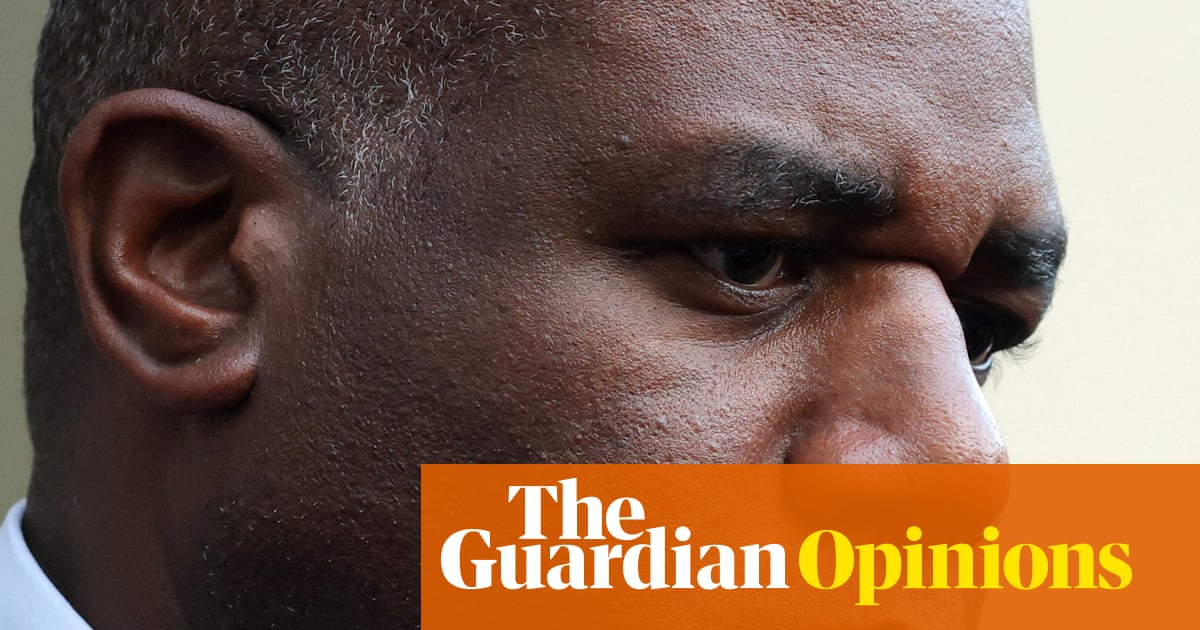The situation was, said the foreign secretary, “fast-moving”. Fast-moving as in totally suboptimal. Fast-moving as in completely out of his control. Fast-moving as in he would rather have pulled the duvet over his head and pretendedthe whole thinghad been a bad dream. That he could go back to sleep for a while and wake up to the world as it was.
Maybe we all wish we could do that. These are the days that many of us would rather had never happened. Does the world feel any safer to you today?
Then there is no accounting for Donald Trump. There has never been a more capricious US president. Even The Donaldhas no idea what The Donald is going to do next. The only certainty is uncertainty. A man who lives almost entirely in the present. No sense of the past. No sense of the future. Just a collection of unpredictable neurons desperately trying to fire across the synapses.
Just last week,Keir Starmerfelt able to sign a communique with other leaders of the G6 – Trump had long since got bored and gone home – which talked of finding a diplomatic solution in the Middle East.
There were hopes that The Donald could be talked out of the military option. That his macho posturing was just that. Hell, even Trump was talking of givingIrantwo weeks to come good on reaching a nuclear deal acceptable to the west. There again, the president often says things will happen in two weeks. It’s almost a Pavlovian response. Almost as if he has no idea how long two weeks is. Could be a day. Possibly two.
Maybe it was the Taco label that got to The Donald in the end. Trump Always Chickens Out. But sometime between sunrise and sundown on Saturday, The Donald decided he knew better than his own director of intelligence services and ordered stealth bombers tounload their bunker busterson three of Iran’s nuclear facilities.
Trump had asked himself: “Do you feel lucky, punk?” and had decided that, on the whole, he did feel very lucky. Hell, that Nobel peace prize wasn’t going to win itself, was it?
The reaction was everything the Donald would have hoped for. Total confusion. Chaos. Trump’s speciality. The US secretary of defence, Pete Hegseth, immediately declared the operation atotal success. The greatest military raid the US had ever done. No other president could have been that visionary.
Iran’s nuclear capability had been totally destroyed, Pete said. Just as the rest of the world was saying there was no real evidence yet to support that. Maybe Iran’s nuclear facilities were still in the game after all. But don’t worry, Pete added. Everything was going to be just fine. This was just a one-off. Regime change had never been part of the plan. Hold my beer, The Donald chipped in.
Back in Blighty,David Lammywas trying to play catch-up. Trying to look as though he had known about the military operation all along, when he had been just as blindsided as the rest of us. That he had got the call from the president when the planes were about an hour out of Iran and been presented with a fait accompli.
Even now, he was still unsure whether it would have been better to be in on the plan – part of the inner circle – or to have the legitimate deniability of the outsider.
Come Monday morning,Lammy was in entirely defensive modeon Radio 4’s Today programme. Refusing to answer any questions about whether the US action had been lawful. “We weren’t involved,” he said, time and again when Justin Webb pressed him.
Which wasn’t really the point. The UK was certain that other wars in which we were not involved were unlawful. So if we could pronounce on their legality, how come the foreign secretary was so reluctant to give a view on the US bombing Iran? A simple yes or no would have cleared things up.
Things were no clearer when Lammy gave a statement to the Commons in the afternoon. Iran couldn’t have nukes, he said. It had failed to reassure the west. So … it had sort of had it coming. Not that we Britons would have gone about things that way, but the Americans quite liked the smell of napalm in the morning.
Now things got even more confused. Because although the escalation had been one of those things that just happen from time to time, it was now time to de-escalate.
And it was up to Tehran to dial things down a bit. Run that one past me again, Dave. Iran was the one that had just been attacked and it was somehow their fault. They were the ones who needed to come to the negotiating table. Clearly different rules apply in the Middle East.
We need a diplomatic solution, said Lammy. Though he couldn’t rule out a little more recreational bombing in the days ahead. “What happens next is hard to predict,” he concluded. Code for “HELP”. “RUN FOR THE HILLS.”
This was to be a session of firsts. Because in reply, Priti Patel said she wanted to work constructively. Something she has never before done in her life. Mostly, though, she was just sad that she wasn’t foreign secretary andcould have launched a few bombs of her own. There’s no way she would ever have been left out of the loop. Please, please, she begged, if there is to be a second attack, please can she join in? Possibly even flying a plane.
Other people saw things differently. Emily Thornberry observed that the only way to end the crisis was with a deal and at present she could see the US had no clear objectives. Negotiations could only be successful if there was mutual trust. And bombing wasn’t generally conducive to trust. Wimp, muttered Priti Vacant. Constructive to the last.
